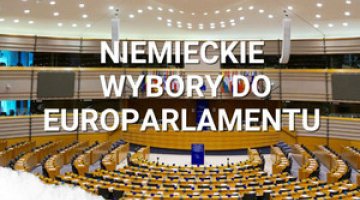Germany’s Social Democrats defend Nord Stream 2
The Social Democratic Party (SPD) Parliamentary Group has published its official position on the Nord Stream 2 pipeline (NS2). The document outlines the party’s strategy on NS2 in the project’s final stage and future activation. Based on the assumption that NS2 is close to completion, the SPD intends to stabilise Germany’s central position as a hub for Russian gas in Europe. At the same time, the Social Democrats want to strengthen their message that NS2 will benefit the EU gas market, including by expanding the circle of those who will gain from the investment.
The SPD’s consolidated position is principally intended to ensure that the party presents a consistent line at all levels, from its statements in the Bundestag and the national German media, to local activists’ conversations on the doorstep. The SPD has likely been led to unify and clarify its argument in favour of NS2 by some criticism in the German domestic debate about the nature of the investments. The party also wants to emphasise its political support for NS2 in contrast to other more visible voices promoting the project, such as the Christian Democrats’ economy minister Peter Altmaier. Nevertheless, the SPD’s document does not deal with a number of issues that the pipeline’s opponents have raised, both in Germany and in other countries.
The document, entitled ‘Long-term security of gas supplies to Europe: Nord Stream 2 as an important element’ was published on 2 April. The first part of the seven-page document includes a selective description of the investment’s conditions and the ways it will benefit the environment, the economy and security of supplies. Next, the paper presents arguments which the SPD believes disprove the idea that Germany and the EU would become excessively dependent on Russian gas. American pressure to purchase LNG and its policy of sanctions against Russia also come in for criticism. The end of the paper declares that the SPD is ready to cooperate with the Central & Eastern European countries on increasing energy security.
Nord Stream 2: first of all, protecting the climate
The project’s considerations are restricted to changes on the energy market linked to the implementation of Germany’s climate protection policy. The decision to move away from coal, in conjunction with the previous decision to withdraw from nuclear power, is intended to boost demand for gas; but it will be harder to satisfy this demand, as extraction in Western European countries is falling. According to the SPD, NS2 will be more environmentally friendly than alternative transmission routes as it provides direct and modern transport along the shortest route, thus reducing methane losses and combustion in the compressor stations.
Meanwhile the report omits any discussion of Russia’s domestic considerations and political motives for constructing the pipeline, or of the investment’s impact on the environment. Also, geopolitical implications going beyond the purely economic dimension were mentioned only in passing; so there are no references to Gazprom’s dependence on the Russian government, or to the Kremlin’s aggressive policy towards Ukraine. The report does not raise the threat that destabilising pressure from Russia could be increased, including a resort to military action in the Donbas. Only the uncertainty in maintaining the transit of Russian gas was recognised as a potential risk for Ukraine. As a result, the SPD declared its solidarity with Ukraine on energy issues, and expressed its support for the German government’s attempts to obtain guarantees that gas transit from Russia will continue.
The state of Germany’s relations with Moscow was described in very low-key terms (a ‘cooling’ in relations, ‘undeniable differences in foreign policy’). The report stipulated that Germany’s position on the EU’s sanctions against Russia has no connection with NS2. The ‘cautious liberalisation of the gas market’ in the Eurasian Economic Union was also noted approvingly.
Natural gas as a bridge fuel
The SPD justifies increasing imports of Russian natural gas by saying that this fuel will play a bridging role in the country’s energy transformation. The Social Democrats present the use of natural gas as essential, and also say that it will complement renewable sources at a competitive price. However, the party did not consider that according to most available forecasts, gas consumption in Germany will decrease in the long-term. The rapid decline in the price of energy from renewable sources and energy storage technologies rather suggests a scenario in which the use of natural gas in the German energy sector will fall more quickly than is currently anticipated. Moreover, the project’s German opponents argue that new investments in gas infrastructure should not be made because the gas will be used as a bridge fuel for a maximum of another 30 years. By that time, Western Europe and Germany will be able to meet the demand for gas through the existing Ukrainian transit system, which has a capacity of 138 bcm.
The SPD assumes that the infrastructure for natural gas can be used in the future for the transport and storage of so-called green gases produced from renewable and climate-neutral sources. These technologies are only in the early stages of implementation, and at present it cannot be determined whether Russia will supply a competitively priced product onto the future biogas or hydrogen markets.
No worries about security of supply
The SPD’s main argument is that the fuel which has hitherto been extracted in north-western Europe must be replaced by imports from third countries. The report emphasises the wealth of the Yamal deposits in Siberia. It also draws attention to the fact that the German network, which is organised on market principles, guarantees the security of transport and redistribution. Contrary to assessments by the European Commission and the European Parliament, the SPD insists that the diversification of supply sources and routes will be increased, despite the fact that after NS2 comes online, more than half of Russia’s gas supplies to the EU will be transported via the Baltic route, whose combined capacity will reach 110 bcm (in 2018 Russian exports to the EU amounted to around 174 bcm).
According to the SPD, the risk that Gazprom will exploit its monopoly position can be averted. The document says that security against dependence on Russia is offered by the EU’s diversified and integrated gas market, including more than 30 LNG terminals which can meet almost half of the demand. Supplies will also be secured by the Russian budget’s real dependence on exports of energy resources. The SPD still uses the argument that supplies from Russia are ‘reliable’ – despite the experience of European countries (including Germany) which import gas from Russia. During the gas crises in 2006 and 2009, Germany experienced reductions in supply, and in 2009 the countries of South-Eastern Europe were completely deprived of gas supplies for 13 days.
The maximum economic benefits from the NS2
Increased imports of natural gas from Russia were presented as the most cost-effective solution in terms of economic benefits. According to the SPD, NS2 will increase liquidity and competition throughout the European gas and electricity markets. Despite the involvement of the Russian state-owned company Gazprom, the investment has been characterised as cost-efficient, as it was initiated by private entities. It was stressed that the pipeline is being built without support from public funds – in contrast to the LNG terminals which are being built to import LNG from the US. The report also mentioned how competitive Russian gas is for the European chemical industry, which would save €3 billion a year in costs thanks to NS2. The SPD’s paper also cites the interests of the pharmaceutical and agrochemical industries, which would be forced to use expensive alternatives if the pipeline’s construction was blocked. The SPD omitted to mention the cheaper option of transferring fuel using the existing infrastructure.
Nord Stream 2 as a European project
The SPD notes NS2’s full compliance with European energy policy, but at the same time it invokes the right of member states to choose their own energy sources. The EU members who support the project were mentioned (the Netherlands, Belgium, Austria, the Czech Republic, Hungary, and also France, a shareholder in the Engie corporation, which belongs to the group of companies co-financing the project). It was stressed that the gas supplied via NS2 will also meet the needs of other countries. The SPD’s report also recalled that the Nord Stream gas pipeline was originally classified as part of the trans-European networks, but omitted criticism of the ongoing investment from the European Commission and the European Parliament. As the SPD sees it, only a few members of the EU have any doubts about the project’s European dimension.
The SPD claims that it does take these objections (raised mainly by Poland and the Baltic states) seriously, arguing that many of their doubts were clarified during the work on the compromise amendment to the Gas Directive. This document presented Germany’s commitment to solutions which would limit the vulnerability of Eastern European countries to Russian energy blackmail. This is to be aided by the development of a common transmission grid and a guarantee that the flows can be reversed, with particular reference to the new EUGAL gas pipeline, as well as the expansion of the gas networks in the Czech Republic and Slovakia. It was noted that around a third of the gas circulating within Europe can be redirected from west to east. The SPD’s position paper signalled a readiness to enhance the dialogue with its eastern neighbours, a common desire to ensure a ‘balance of interests’, and the possibility of undertaking joint initiatives with eastern EU states to boost energy security.
Summary
The bulk of the arguments presented by the Social Democrats are shared by the co-ruling CDU and CSU parties. In the context of the domestic German debate, the SPD’s position on NS2 also reflects an attempt to promote the party as a political force which combines a commitment to the environment and climate (more so than the Christian Democrats) with the promotion of the German economy’s interests (more so than the ‘ideologised’ Greens, who are the only political force actively opposing the pipeline). The Social Democrats have clearly come down on the side of the German gas sector and that part of German industry which is pushing natural gas as a bridge fuel in the energy transformation process. But by doing so, they are exposing themselves to greater criticism from the lobbies of those companies and institutions that support the rapid reduction of emissions and the electrification of other sectors of the economy. The document also shows that the SPD will continue to draw upon anti-American sentiments in Germany. This argument will appeal not only to voters who disapprove of the US’s military and political influence in Europe, but also to those who oppose the extraction of shale gas and its import from the US.




